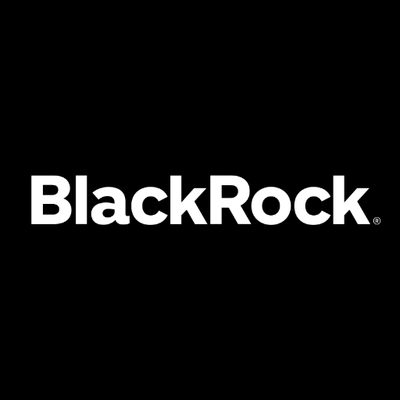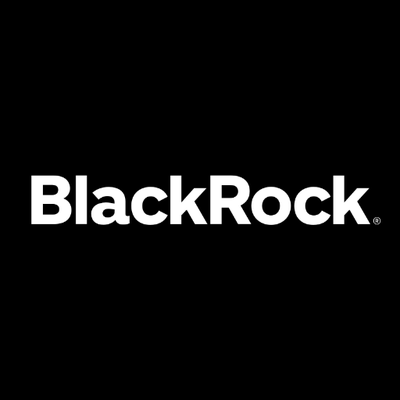Blackrock Income and Growth Investment Trust plc (LON:BRIG) has provided the following portfolio update:
All information is at 30 September 2020 and unaudited.
For more information on this Trust and how to access the opportunities presented by the income and growth sector, please visit: www.blackrock.com/uk/brig
Performance at month end with net income reinvested
| One Month | Three Months | One Year | Three Years | Five Years | Since 1 April 2012 | |
| Sterling | ||||||
| Share price | 10.6% | 12.7% | -5.5% | 1.4% | 23.6% | 85.4% |
| Net asset value | -0.7% | -2.4% | -14.1% | -8.3% | 13.4% | 58.3% |
| FTSE All-Share Total Return | -1.7% | -2.9% | -16.6% | -9.3% | 18.6% | 49.0% |
Source: BlackRock
BlackRock took over the investment management of the Company with effect from 1 April 2012.
At month end
Sterling:
| Net asset value – capital only: | 168.02p |
| Net asset value – cum income*: | 170.65p |
| Share price: | 182.00p |
| Total assets (including income): | 42.4m |
| Premium to cum-income NAV: | 6.7% |
| Gearing: | 4.6% |
| Net yield**: | 4.0% |
| Ordinary shares in issue***: | 22,525,600 |
| Gearing range (as a % of net assets): | 0-20% |
| Ongoing charges****: | 1.1% |
* Includes net revenue of 2.63 per share
** The Company’s yield based on dividends announced in the last 12 months as at the date of the release of this announcement is 4.0% and includes the 2019 final dividend of 4.60p per share declared on 24 December 2019 and paid to shareholders on 19 March 2020 and the 2020 interim dividend of 2.60p per share declared on 24 June 2020 and paid to shareholders on 1 September 2020.
*** excludes 10,093,332 shares held in treasury
**** Calculated as a percentage of average net assets and using expenses, excluding performance fees and interest costs for the year ended 31 October 2019.
| Sector Analysis | Total assets (%) |
| Financial Services | 9.9 |
| Pharmaceuticals & Biotechnology | 8.6 |
| Household Goods & Home Construction | 7.7 |
| Personal Goods | 7.2 |
| Support Services | 6.9 |
| Media | 6.8 |
| Mining | 6.4 |
| General Retailers | 5.1 |
| Tobacco | 4.8 |
| Gas, Water & Multiutilities | 4.7 |
| Banks | 4.3 |
| Oil & Gas Producers | 3.6 |
| Food & Drug Retailers | 3.0 |
| Health Care Equipment & Services | 2.9 |
| Nonlife Insurance | 2.9 |
| Travel & Leisure | 2.5 |
| Life Insurance | 2.2 |
| Electronic & Electrical Equipment | 1.4 |
| Industrial Engineering | 1.3 |
| Mobile Telecommunications | 0.8 |
| Technology Hardware & Equipment | 0.8 |
| Real Estate Investment Trusts | 0.5 |
| Beverages | 0.5 |
| Net Current Assets | 5.2 |
| —— | |
| Total | 100.0 |
| Top 10 holdings | Fund % |
| AstraZeneca | 7.1 |
| Unilever | 5.8 |
| RELX | 5.2 |
| Reckitt Benckiser | 5.1 |
| British American Tobacco | 4.8 |
| BHP | 4.4 |
| Tesco | 3.0 |
| Smith & Nephew | 2.9 |
| 3i | 2.8 |
| John Laing Group | 2.8 |
Commenting on the markets, Adam Avigdori and David Goldman representing the Investment Manager noted:
Performance Overview:
The BlackRock Income and Growth Trust returned -0.7% during the month, outperforming the FTSE All-Share which returned -1.7%.
Market Summary:
Global equity markets fell in September on the back of geopolitical risks and concerns over a second wave of virus infections causing renewed lockdown measures. US growth stocks came under pressure in early September, suffering their worst sell-off since the depths of the market turmoil in March, with the Nasdaq down -5.7% in September. The first US Presidential Election debate proved inconclusive and there continues to be a lack of market consensus about the ultimate outcome of the election. The death of renowned US Supreme Court Justice, Ruth Bader Ginsburg has left an open seat in the Court and looming debate over when it will be filled. The British Pound was down 4% against the USD as the UK government sought to push forward a bill in Parliament that would allow it to override parts of its Withdrawal Agreement with the European Union, raising concerns about the rising risks of a no-deal exit from the trading bloc at the end of the year if it pushes ahead.
In the UK, new restrictions were implemented following a spike in coronavirus cases, included limiting gatherings to 6, encouraging those that can work from home to do so and imposing a curfew on pubs and restaurants. The Chancellor’s Winter Economy Plan was a scaled-down extension of existing measures, focusing on the immediate challenges to job retention and corporate cash flow, rather than longer-term structural initiatives; estimated at a total £5bn. The official UK unemployment rate is climbing although there were encouraging signs in hours worked and vacancies; those ‘temporarily away from work’, which includes furloughed employees, has fallen.
The FTSE All Share fell -1.7% in September, with Oil and Gas, Telecommunications and Financials as top underperformers, whilst Consumer Goods, Utilities and Industrials outperformed.
Stocks:
Contributors to performance included John Laing Group. The company announced the sale of its largest asset for a good price. Meanwhile, the new CEO has implemented change and bought company shares, we continue to see this as a compelling investment case. Unilever also contributed after reporting strong results in the month. Not owning HSBC also contributed. Financials continue to underperform as we continue to see pressure on interest rates and thus concerns over the banks’ earnings power.
Not owning Diageo detracted from returns. The company announced better performance and shares rallied. Whitbread also detracted as travel and leisure companies generally continue to struggle. Grafton Group also detracted.
Portfolio Activity:
We purchased The Hut Group which IPO’d in the month, a British e-commerce company which sells consumer goods direct to consumer via its proprietary e-commerce platform. We anticipate strong growth from its ecommerce solutions business. The company’s track record in successfully building its own Beauty and Nutrition brands and high-profile recent contract wins give us confidence in this solution. The group is well-invested, and we expect to see strong top line growth to drive strong margins and cash flow.
We sold Trainline and Forterra.
We added to 3i Group, Mastercard, Intermediate Capital and Maxim Integrated Products. We reduced BHP Group, Berkeley Group and Next.
On Dividends:
From peak to trough, FTSE All Share dividends fell by around 40%. The Trust has fared better than this as we have either not owned or been underweight the biggest cuts, and conversely, we have been overweight the more resilient parts of the market, we estimate that the Trust has seen a c.30% peak to trough decline in dividends. We believe that this relative resilience stems from our focus on identifying cash generative franchises with robust balance sheets.
When assessing the dividend outlook for the FTSE All Share, we estimate that around half of this 40% peak-to-trough fall in dividends will prove permanent and half will be temporary. Turning to the Trust, we expect less than 10% of the portfolio’s dividend to be permanently impaired and we are already seeing a number of holdings coming back to the dividend list, in some cases reinstating dividends that had been deferred during the pandemic.
We view the dividend outlook for the UK market with renewed optimism as we expect dividends, in aggregate, to be more resilient and to grow faster in future. A number of companies that we have considered to be overdistributing for a number of years have now reset their distributions to more appropriate levels. This gives us confidence that UK Equities offer an attractive source of yield in an income-starved global context.
Outlook:
The third quarter has seen a continued normalisation, with improved economic activity benefiting from ongoing fiscal and monetary support while government restrictions have been eased. In the UK, we have seen schools and offices reopening while companies attempt to gauge the underlying demand for their products and services as they prepare themselves for the impact of reduced and more selective furlough support. We continue to monitor rising unemployment levels and note that the banks are already braced for a significant increase in impairments. On a more bullish note, however, we have seen evidence of robust consumer spending as Covid-19 impacted travel and leisure spend is diverted to other parts of the economy as evidenced by retailers posting strong numbers and rising house prices. Accordingly, we continue to tread cautiously; balancing the significant long-term opportunities we see with the wide range of short-term scenarios and factors. We expect volatility is likely to persist given large binary events on the horizon in the near-term, notably the US election, Brexit ‘deal or no deal’ as well as news flow around Covid-19 in terms of rising case numbers and the potential for further lockdowns as well as vaccines and treatment updates. Longer term, we are conscious of the growing tension between the US and China, as well as watching for the potential for a more inflationary backdrop which would likely have significant implications for market leadership.
We continue use the scale and breath of the platform at BlackRock to leverage significant resources across stock analytics, market insights and data science. We know, from our experience in 2008/2009, how important these resources and support are and the opportunities it enables you to find. We seek to ensure the Trust continues to build on the resilience it has demonstrated amidst the volatility year to date to deliver strong capital and dividend growth over the long term.
16 October 2020
For more information on this Trust and how to access the opportunities presented by the income and growth sector, please visit: www.blackrock.com/uk/brig






































